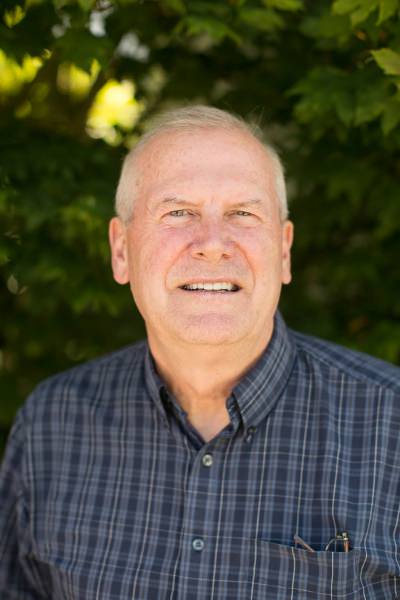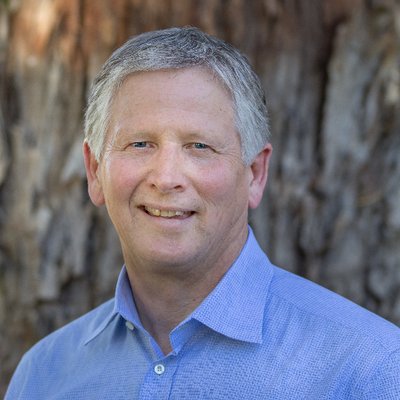2014年の秋、米ワシントン州エドモンズにあるバプテスト教会は、新たな教会を開拓した。しかし、それは一般的な教会開拓ではない。福音派であるバプテスト教会ではなく、聖公会の信仰に基づく教会だったのだ。
[toggle]In the fall of 2014, a Baptist church in Edmonds, Washington, planted another congregation. But this wasn’t an ordinary planting experience—rather than starting another church in their own tradition, they planted an Anglican one. [/toggle]CT(クリスチャニティー・トゥデイ)パスターズの編集者はその情報を聞き、立役者の二人のリーダーに話を聞いた。バリー・クレーンはシアトル地域のノース・サウンド教会の主任牧師。この教会はコンバージ教団(旧称:バプテスト総会)に加盟している。そしてもう一人のトッド・ハンターは、米国聖公会の「他者のための教会(C4SO)」の主教だ。
[toggle]When they heard about it, the editors of CT Pastors had to talk with the two key leaders behind the new church plant. Barry Crane is lead pastor of North Sound Church in the Seattle area, associated with Converge (formerly known as the Baptist General Conference). Todd Hunter is a bishop of Churches for the Sake of Others (C4SO) in the Anglican Church in North America. [/toggle]──どういった経緯でこんなことになったのでしょう。
[toggle]How did this happen? [/toggle]バリー・クレーン(バプテスト):私たちのノース・サウンド教会があるのは、シアトルのすぐ北のエドモンズ市です。州間高速道路からクルマで15分ほどのところにあります。高速道路の隣に土地を購入して、働きを近隣に広げることも検討しましたが、むしろこの地域に根の張った働きにしようと決めたのです。小規模な教会をつくることも考えましたが、ここには大都市のような人口密度はありません。結局、多くの人は大きな教会まで車で行くことになります。
[toggle]Barry Crane: North Sound Church is located in Edmonds, just north of Seattle, about 15 minutes from the Interstate. We debated buying property next to the Interstate to become a regional congregation, but we decided to drill deeply into our own community. We considered planting neighborhood churches. But we don’t have the population density of Manhattan; many people would just drive to the main building. [/toggle]2011年、私は一部の人に電話をかけて聞きました。「自分たちと同じような教会を別の場所につくるという一般的な教会開拓の方法ではなく、宣教優先の視点で考えたらどうだろう。私たちがこの地域でアプローチできていない層を考えた場合、どのような方法が考えられるだろうか。この地域で既存の教会が伝道できていないのは、どんな人々だろう」
[toggle]Eventually I called a group of people together in 2011 and asked, “What would it look like if instead of a traditional church-planting model—planting our denomination in a different geography—we looked at it from a missiological viewpoint? What if we saw the unreached people groups in our area? Who in our community is not being reached by existing churches?” [/toggle]
バリー・クレーン牧師(写真:自身のツイッターから)
──それで何が分かったのですか。
[toggle]What did you discover? [/toggle]バリー・クレーン(バプテスト):伝道の手が届いていない人々がいることです。パーセプト・グループ社にお願いした調査結果から、教会の半径3マイル以内にいる約1万7000人の人たちは、教会が伝統的に守ってきた礼拝形式を好むことが分かりました。
[toggle]Crane: An unreached people group. Our study through Percept Group revealed about 17,000 people within a three-mile radius of the church who prefer a liturgical form of worship. [/toggle]──そうした伝統的な主流派教会によるアプローチを彼らは受けていないのですか。
[toggle]Aren’t they being served by mainline churches? [/toggle]バリー・クレーン(バプテスト):私たちの見立てでは、この地域の伝統的な教会に出席しているのは最大で3000人ほどです。つまり、地域のほとんどの人は教会に関わりを持っていなかったのです。この半世紀、米国のすべての教会は困難な時期にありましたが、特に伝統的な教会は苦しい時期を過ごしました。1965年から2005年にかけて、伝統的な主流派教会は信徒の15~46%も失っています。
[toggle]Crane: We estimated that if you added all the folks attending liturgical churches in our area, there would be a maximum of 3,000. That left most of this group unserved. The fact is, although it has been a challenging half-century for all churches in America, it has been especially so for mainline liturgical congregations. From 1965 to 2005 they have lost anywhere from 15 percent to 46 percent of their adherents. [/toggle]──伝統的な教会を建てることは、あなたの教団の指導部にとって苦渋の決断だったことでしょう。
[toggle]We’re guessing that planting a liturgical church was a hard sell for your leaders. [/toggle]バリー・クレーン(バプテスト):私たちは歴史によって導かれた部分があります。私たちの教会は2004年にバプテスト教会の助けを受けて設立され、教会開拓ネットワークに参画しました。このネットワークは、「ペイ・フォワード」形式で他教会を財政的に助けるのです。この働きはコンバージ教団で継続されています。このネットワークには、ある原則があります。「教会開拓の働きは、他教会からすると、割に合うものではない。私たちはそのためにお金と人々をわざわざ差し出すのだから」
[toggle]Crane: Our history somewhat prepared us. We were planted by a Baptist church in 2004, so we became part of a church-planting network, “paying it forward” by helping another church get started financially. We still do that with Converge. And in this church-planting world we live in, there is a principle we take as axiomatic: “Churches committed to church planting don’t make sense to other churches. They give money and people away.” [/toggle]私たちがこのやり方を自分たちのグループ外に適用することはまずありません。しかし、「地域に愛を示すために、人々とお金を与える」というのは、そこから大きく外れたことではありません。聖公会の人々なら、私たちがアプローチできない人々にも届くことができるでしょう。「自分たちはどんなかたちでその手助けができるだろう」と私たちは考えたのです。
[toggle]Usually we don’t apply that beyond our own tribe, but it’s not a big stretch to say, “We want to give people and money away, to show love to our community. Who could our Anglican friends reach that we’re not able to reach? And how can we help them do that?” [/toggle]トッド・ハンター(聖公会):でも、儀式的傾向のあるバプテスト教会を始めることもできたのではないですか。
[toggle]Todd Hunter: You could have started liturgically-leaning Baptist churches. [/toggle]バリー・クレーン(バプテスト):「私たちは毎週日曜日に聖餐式をすべきだろうか」という疑問点にノース・サウンド教会は直面しました。しかし、サクラメント(典礼)の神学を持っていない限り、それはうまくいきません。伝統的な礼拝が必要とされているのなら、それを心から行える人々が必要です。それは私たちではありません。
[toggle]Crane: We flirted with that idea at North Sound: “Should we do Communion every Sunday?” I realized, Unless you have a sacramental theology, it won’t work. If a liturgical service was going to work, it had to be authentic to the people, and that’s not who we are. [/toggle]──どんな反応がありましたか。
[toggle]What was the reaction? [/toggle]バリー・クレーン(バプテスト):私の恩師はこの計画についてあまり乗り気ではありませんでした。そこで、私はこう言ったのです。「あなたから神の国の神学を教わりましたが、これはそれを論理的に発展したものです」と。彼は自分の皿を見下ろすと「そうだな」と言いました。それ以来、彼は私たちのことを応援してくれるようになりました。
[toggle]Crane: My mentor wasn’t too sure of our plan. I said to him, “You are the person who taught me the theology of the kingdom of God. And this is the logical extension of your theology.” He looked down at his plate and said, “I know.” Then he became a cheerleader. [/toggle]
トッド・ハンター主教(写真:自身のツイッターから)
──トッドさんがこの計画に関係するようになったのは、どういった経緯からですか。
[toggle]Todd, how did you come in to this? [/toggle]トッド・ハンター(聖公会):バリー先生は、アルファ・コース(世界中で取り組まれているキリスト教入門プログラム)や友人を通して私のことを知っていました。「支援を受けながら、ノース・サウンドの建物で聖公会の教会を始めませんか」と、彼は私に提案してきたのです。「これは少し変わったやり方だけど、上手くいくかもしれません」とね。2013年10月、バリー先生の教会の役員たちと会い、「バプテスト教会が聖公会の教会を建てたらどうなるだろう」と尋ねました。
[toggle]Hunter: Barry knew of me through a friend, and my days at Alpha. He contacted me and proposed we start an Anglican congregation in North Sound’s building, sponsored by them. I said, “It may be a little strange, but this could work.” In October 2013, I sat with Barry’s elders and we said, “What would it look like for a Baptist church to plant an Anglican church on top of it?” [/toggle]──バプテスト側の課題は何でしたか。
[toggle]What were the challenges from your side? [/toggle]トッド・ハンター(聖公会):バリー先生と私との間には気安くて自然な信頼関係がありましたが、この計画を遂行するためには、ノース・サウンド教会、コンバージ教団、C4SO、そしてカスカディアの聖公会教区の間でパートナーシップを形成する必要がありました。「誰がその教会を監督するのか」という問題がすぐに浮上してきたからです。
[toggle]Hunter: Barry and I had easy, automatic trust, but for this to work, we had to form a partnership of North Sound Church, Converge, C4SO, and the Anglican Diocese of Cascadia. There was this immediate question of episcopacy. [/toggle]『伝道的教会』や『神のたくらみ』といった本が出て以来、「神の国」を用いたレトリックが多く使われるようになりました。たとえば、3つの教会が集まって「神の国のために」誰かの家を改修しようと協力するのは簡単なことです。しかし、私たちの計画はそれよりも困難でした。主教の監督下に教会を建てるということは、ほかの誰もその教会に口出しすることができなくなるということですから。そして、この教会が建てられるのは私の教区ではなく、ケビン・アレン主教が監督するカスカディア地区です。彼の協力を得る必要もありました。
[toggle]Since the books Missional Church and The Divine Conspiracy, there’s been a lot of kingdom rhetoric. And it’s easy to work together for the kingdom when, say, three churches get together to refurbish somebody’s home. But the reality in this situation was harder—when you plant a church that will be under a bishop, that church can’t be under someone else. And this church would be planted not in my diocese, but in Cascadia, under Bishop Kevin Allen, so he also needed to support the plan. [/toggle]──あなたがモチベーションを保つことができたのはなぜですか。
[toggle]What kept you motivated? [/toggle]バリー・クレーン(バプテスト):私が願ったのは、この教会開拓の働きによって3つのグループの人々にアプローチすることです。
①主流派教会から去った人々
②現代的な礼拝にうんざりしていた団塊世代(私は大きな教会の主幹牧師でしたから、そういった人々に理解がありました)
③古くから続けられてきた礼拝形式の神秘性を知りたいと願う若者
最近は、ソフト・ロックバンド形式の現代的賛美に代わるスタイルへの関心が高まっているようです。何年も前にロバート・ウェバーは、「ポスト・モダンの環境下で若者たちは神秘性とサクラメント(秘跡)に引き込まれるだろう」と言っていました。(後編に続く)
[toggle]Crane: We hoped this church plant would reach three groups: (1) de-churched Christians from mainline churches, (2) baby boomers who had tired of contemporary worship (I was an executive pastor in a large church, and I understood other people like me), and (3) young people who wanted to capture the mystery of ancient-future worship. There appears to be a growing interest for an alternative to contemporary worship led by a soft rock band. Robert Webber saw this years ago when he said that in a postmodern setting, young people would be drawn into mystery and sacrament. [/toggle]